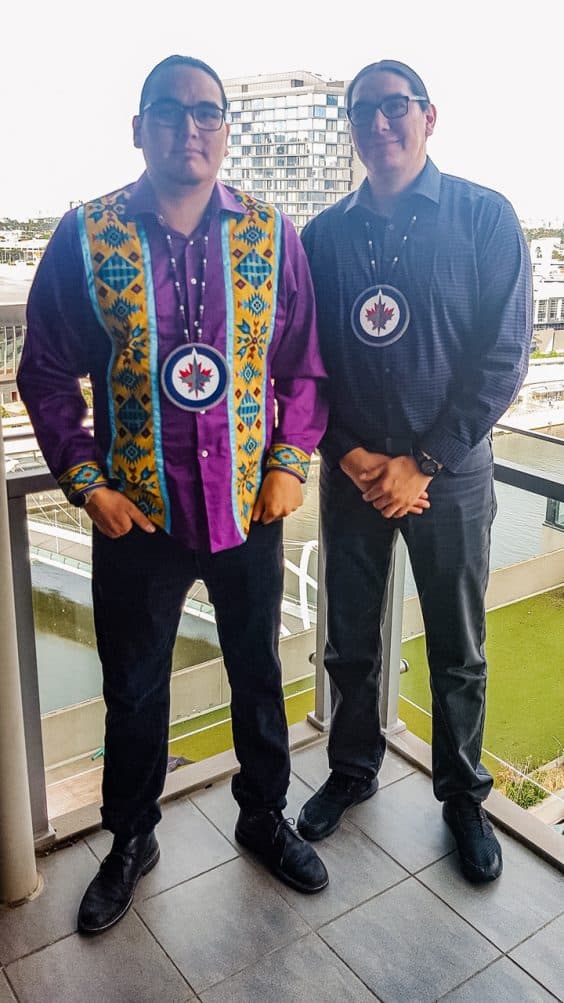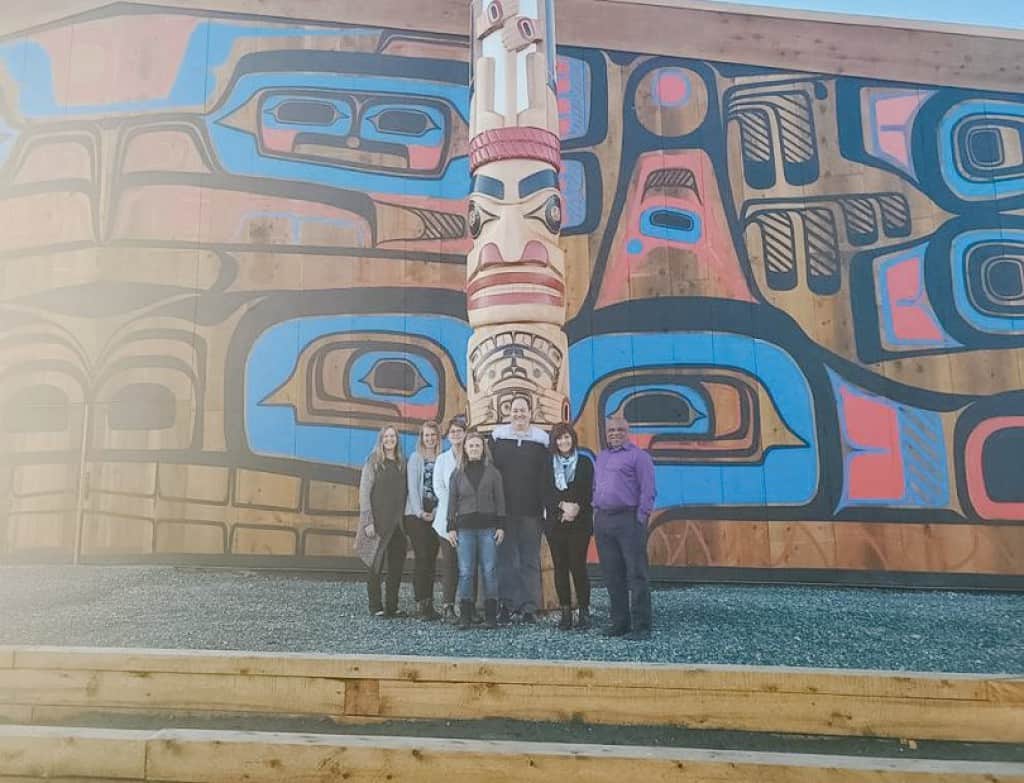Around 2000, Winnipeg resident Craig Settee’s kid brother Kevin, just 10, was diagnosed with kidney disease. It was a shock for the whole family – Kevin was so young. His health gradually grew worse and a decade later, he had full-on kidney failure and needed dialysis. To save his life, he would need a new kidney. He was placed on a transplant list. That’s where Craig came in and in October, 2012, Craig successfully donated one of his kidneys to Kevin.

“It’s been a long journey but it’s strengthened our relationship, says Settee, who is Anishinaabe (Ojibwe) on his mother’s side and Nehinaw (Cree) on his father’s. “I wanted to look out for him as his older brother.”
Settee says his family was fortunate to have lived in a fairly large city with access to health care.
Yet that’s not the experience of Indigenous Canadians with chronic kidney disease (CKD) who live in rural or remote parts of the country. For that reason, Settee, who now lives in Vancouver, is working with Kidney Check, a screening, triage and treatment program for Indigenous communities in rural or remote parts of Canada, including British Columbia. Its aim is to prevent CKD, diagnose it early, and identify those at highest risk so they can receive treatment before it becomes kidney failure. Individuals are linked with care appropriate to their risk level. Follow-up will also be provided.
The study is part of a national kidney research network called Can-SOLVE CKD, which is working on treatment and care for Canadians living with or at risk of CKD. That organization is funded by numerous partners, including Providence Health Care Research Institute and St. Paul’s Foundation.
One in three Indigenous Canadian adults has chronic kidney disease
While one in 10 Canadians suffers from kidney disease, a study cited by Kidney Check, which is partnering with First Nations Health Authority on the BC portion of the study, shows that the rate for Indigenous adults is one in three. Indigenous people also have high rates of predictors for CKD such as diabetes, and high blood pressure.
Catherine Turner, Kidney Check Provincial Co-ordinator, says the higher prevalence of CKD in Indigenous communities compared to the overall population is due to complex factors, including social determinants of health like poorer access to health care, significant income gaps compared to other Canadians, inadequate health-care follow-up and racism.
Program “honours the information” participants provide
She says it was important to include a culturally relevant screening and triage process for Kidney Check that uses OCAP principles of data collection developed by First Nations across Canada: ownership, control, access and possession. “This means that we honour the information that people provide to us (for instance, blood and urine samples) – and inform them this belongs to them,” says Turner. “They can change their mind about participating at any stage and we assure them that we are using aggregate information for our reporting to Can-SOLVE CKD.”
Another important aspect of the program is strong community engagement. This approach demonstrates respect for the self-determination of participating communities, says Turner. “We work in partnership with communities. It’s important to work alongside residents and not come in as an expert in their health care.” A strong focus on relationships building, along with respect and conducting activities in a spirit of reconciliation, are all key parts of the research.
The use of patient partners can go a long way. “They’re are very important,” says Settee, who has served as a patient partner at Can-SOLVE CKD and is co-ordinator with the Indigenous Peoples Engagement & Research Council. The council ensures Can-SOLVE CKD respects Indigenous people’s unique health needs. “Patient partners’ feedback can be used by researchers to improve the healthcare system.”
The goal is to screen up to 1,000 people in 16 First Nations communities in BC. Bella Bella, on BC’s Central Coast, is one such community. To date, a total of 133 people in BC have been screened.
Working around COVID-19
Turner says the screening has been put on hold due to COVID-19. But Kidney Check is not shutting down altogether. Beth Neilson, the lead nurse for BC Kidney Check, is developing a series of training videos that will guide screening in the communities.
The program includes a final visit to participating communities to evaluate its success.
Settee says Kidney Check’s process of screening people’s kidneys is vital to their good health. “Sometimes people get screened when their kidneys are beyond the point of repair. But the sooner you can find out about your kidneys’ health, the sooner you can get the treatments you might need.”
Story originally appeared on The Daily Scan
